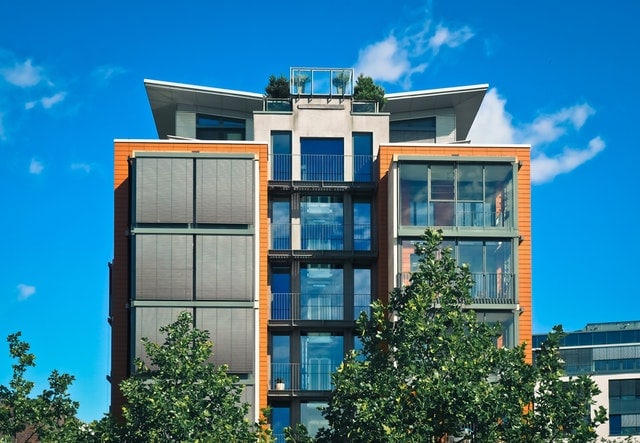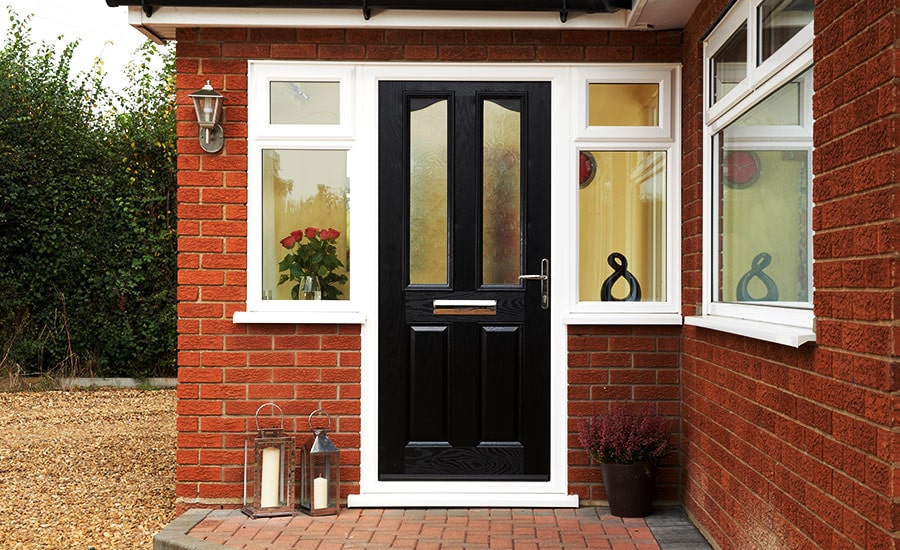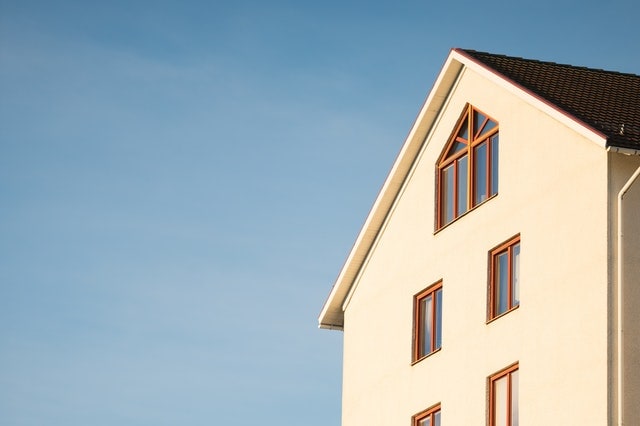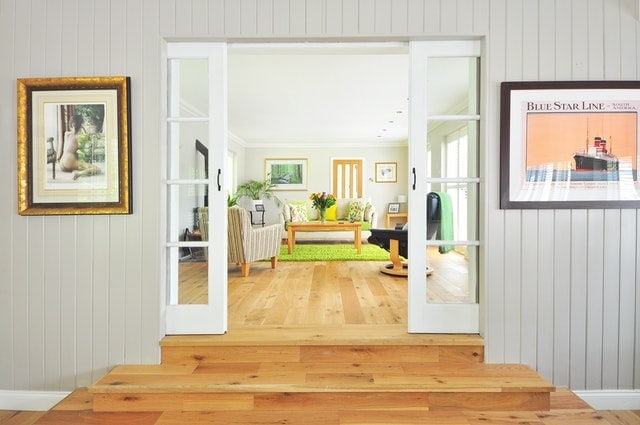Eco-friendly upgrades to save money on your home
Wondering whether or not to make eco-friendly upgrades to your house, and whether it is worth the time and investment to do so? There are some common misconceptions regarding eco-friendly renovations, particularly relating to being so costly to build that it means that you will never be able to make a return on your investment. However, that is simply not the case.
It is possible to help not only the environment but also boost the eco-friendliness of your home whilst also saving money. But how exactly do you do achieve that? Octagon Capital takes a look at the best ways you can make your home more energy-efficient as well as cut down on costs:
- Filling wall cavities in your property
- Look at purchasing solar panels
- Purchase an eco-friendly air-source heat pump
- Use energy-saving bulbs
- Make the most of natural lighting
- Choose water-saving taps
- Be savvy with your window choice

Filling wall cavities in your property
Insulating your cavity walls can help you to save a significant amount on your heating bills each month. This is notably the case for houses built before the 1990s, where many homes built before this period do not tend to have cavity wall insulation already installed, and it is thought that around a third of all heat lost in a property that is uninsulated is lost via the walls. The costs of renovating your property so that cavity wall insulation has been installed costs an estimated £475. However, according to Which? an eco-friendly house that has cavity walls saves each year around £160 when it comes to heating bills, meaning that you will make a return on your investment in just three years.
Look at purchasing solar panels
Of course, one of the most popular ways people decide to make their homes more environmentally friendly is through purchasing solar panels. Some people can be put up by the initial upfront costs involved with installing solar panels (costs can vary between £5,000 up to £8,000) however, you could end up making considerable savings in the long run. According to the Energy Saving Trust, you can earn up to £260 a year if you have solar panels in your home due to government feed-in tariffs, as well as saving on average £60 yearly on electricity bills.
Purchase an eco-friendly air-source heat pump
Perhaps the idea of having solar panels installed on your property does not appeal to you, maybe due to the less than aesthetically pleasing nature of them. This is where having an air-source heat pump instead may come in handy. But what exactly are they?
Air-source pumps help to keep you warm all through the winter months as they generate their heat from outside air (if the temperature is above -15 degrees). The technology that air-source pumps use also provide warm water for your home, as well as provide underfloor heating, meaning that having these installed in your property can have a number of different uses. Furthermore, not only will you reduce your overall carbon footprint, but you will also be reducing your fuel bills in the long-term, as you can expect to make fuel savings each year of up to £1,805.
If the idea of purchasing an air-source pump is of interest to you, you should take a look at the governments Renewable Heat Incentive scheme, created in order to encourage people to pursue more eco-friendly investments for their homes. So whilst installing such a system could cost around £7000 you could end up earning anything between £905 and £1,365 from the Renewable Heat Incentive scheme each year, with the exact amount you receive depends upon the current heating system you have.
Use energy-saving bulbs
Did you know that LED bulbs not only last twenty times longer than other types of bulbs available but that they also use 85 per cent less energy too? This makes energy-saving bulbs one of the cheapest, but also one of the most worthwhile investments you can make in order to have your home not only be more eco-friendly but also to reduce your running costs.
Make the most of natural lighting
We all want to reduce our electricity bills, and one of the easiest ways that you can do this, whilst also being more environmentally friendly is to make the most of natural light in your home. Here are some of the best ways you can do just that:
- Using glass in partitions, doors wherever possible in order to filter as much light between spaces as possible
- Consider having light-coloured floors, as this is another way that light can bounce naturally from the windows into the space
- It is also worth over-extending curtain poles. This means that as you will be able to pull curtains fully back you won't block natural light falling into that room
Choose water-saving taps
Another way you can reduce your bills and be more energy-efficient is by deciding to buy water-saving taps. There are a number of energy-saving taps available on the market that produce hot and cold water instantly, meaning you do not need to boil a kettle.
Be savvy with your window choice
Did you know that whilst uPVC windows actually generate as much as 43 per cent more wast than timber windows, with half the lifetime of them too? Though uPVC windows have been commonly seen as the more environmentally friendly option, it is not necessarily the case. If you are choosing new windows consider having wood windows. This is because overall, it has a lower environmental impact, as it is very thermally efficient as well as being a good insulator.
How to Get a House Valuation for Free
Thought it wasn't possible to find out how much your property is worth without having to fork out money? Thanks to the web, there are a number of completely free online tools at your disposal that can be used to estimate the price of a house, whether you are buying, selling, or simply browsing. Octagon Capital has put together the very best tools out there as well as providing expert tips regarding property valuations.
See what previous buyers got for their cash
It can often be difficult to see online exactly what a buyer got for their money (with the majority of sold-house sites, it will simply state the price and whether it was an apartment or house) with many property websites also tending not to state if the sale price was the same as the asking price.
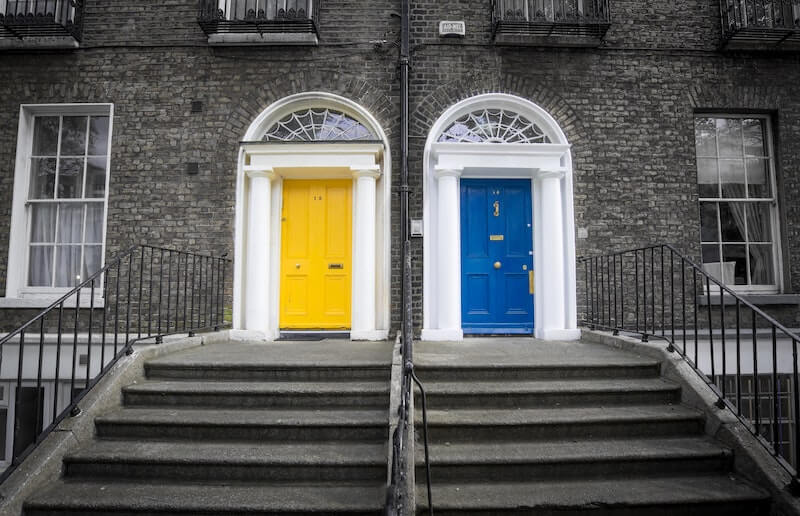
However, there are ways around this to help you see if the previous buyer ended up overpaying or manage to get a discount. For example, Zoopla has a sold prices section that enables you to search a location and then see archived records for a property, detailing the price listings over a number of tears.
Check house price indexes
One of the best ways to identify the value of a property for free is by checking house price indexes online, which allow you to track housing trends both locally and nationally. There are a number of ways you can check:
- The Land Registry's House Price Index provides data on sales of almost all residences across England and Wales. It also breaks down house prices by country and region, as well as the type of property
- If you are looking at houses in Scotland you can look at data from Registers of Scotland. This provides information on house prices according to the district, as well as monthly average prices and sales volumes. As with the Land Registry, there is usually a time lag of about a month or so
- There is also the option of looking at Nationwide's House Price Index, where it breaks down the national and regional house valuation data
Get an estimated valuation on your home
There are a number of free property valuation tools available online, one of these includes Mouseprice.com, all you need to do is give your postcode as well as the number of bedrooms in your property.
Keep an eye on house prices on the go
Check out one of the free property apps available that allow you to monitor house prices on the go. The Rightmove app uses GPS technology to identify houses or flats for sale near you, wherever your location may be at the time.
Check for air pollution and flood risks
There are free sites available to show you if a property that you are considering buying is potentially susceptible to flooding, which could end up saving you a considerable amount of money in the long run. It may not be something you will be immediately thinking of when deciding to buy a house, but you should remember that if a house has a high risk of flooding this will also then impact upon the property's value as well as insurance premium.

For properties in England and Wales, look at the Environment Agency, and to check the flood risk of houses in Scotland, contact the Scottish Environment Protection Agency. Both these agencies will have detailed reports about whether an area is considered low, moderate or at significant risk of flooding. They will also be able to check for air quality, as well as other potential pollution issues.
Look at crime rates
Crime rates in an area will not only impact the price of a property but also have an effect on your insurance premiums. This is why it is well worth taking the time to look at the police. uk crime mapping website, which allows you to look at all recorded crimes in England and Wales by street.
Check for subsidence risks
You could end up saving a lot of money by simply conducting a quick search on the website Homecheck. This site collates data from a number of different resources, including the British Geological Survey, and helps to analyse the risk of subsidence and other environmental problems in any area of the UK. All you need to do is type in a postcode, and it will do the hard work for you.
Get a ballpark valuation
Use free online tools from a number of sites in order to get a rough indication of what your home is valued at. One of the most popularly used sites is Zoopla, with this site all you need to do is pop in your postcode and then they will provide you with an estimate for sale prices for the location.
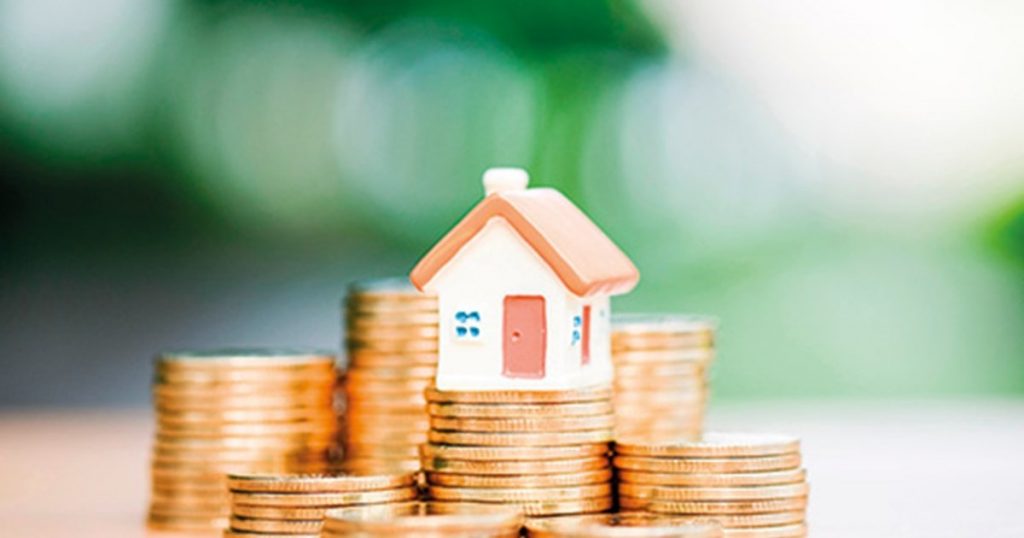
You can also get a bespoke valuation, by selecting a house on a street using market data and old sales prices. It is also possible to predict rental income, as well as then compare it to the location's average.
Sign up for house price alerts
Another way to keep an eye on housing trends is to sign up for free monthly email alerts. This enables you to keep a track of any fluctuations of property prices, without having to put much effort in to do so. Signing up with Mouseprice means that you can get alerts about if a seller has reduced their property prices in your chosen area, as well as all house price info.
Look at the council tax band
It is very easy to be able to check your council tax bands in England and Scotland, and you may be able to make a considerable amount of savings by challenging the council tax band, meaning you can then get a rebate potentially worth thousands.
Buying vs renting a property
Buying vs renting a property
Making the decision to buy or rent a property is never easy. There are pluses and minuses to both, as it can depend on your own personal and financial circumstances as to which is more preferable. For example, whilst the price of buying a home in England has risen in the past decade, so have rents across the county too. We explore the advantages of both buying and renting a property in the UK.
Advantages of buying a property
- You are able to have the freedom to do as you please if you have bought a property in terms of decorating the property, or if you choose to carry out a renovation project. If you buy a house, then you have the freedom to make home improvements that you wouldn't be able to carry out if you were renting a flat or house. This also is the case when it comes to having a pet, with many landlords usually extremely hesitant for tenants to own a cat or dog, and if you have a pet without getting permission it can sometimes even lead to eviction (or at least a higher deposit to pay when moving in)
- It is an investment for the future, which isn't the case when it comes to renting. Many people are put off renting due to this very fact, as it can be perceived as money going down the drain
- You can invest further in your own property, for example by considering home improvement loans, which can be used to increase the value of the property (find out more here)
- You have the potential to buy-to-let the property, meaning you can have an additional money earner through rental income coming in each month. If using the property as a buy-to-let investment property, it may be possible to acquire a second charge mortgage on the property
- The house may accumulate in value, meaning that you could end up making a fortune in years to come which could allow you to buy a bigger and better home, or to help you in your retirement years
It is important to keep in mind that you need to make sure that it is possible that you can afford to buy in the first place, as it isn't just the deposit you will need to take into account when it comes to costs. There are a number of costs you need to consider such as:
- Stamp duty
- Legal fees when exchanging contracts
- Monthly bills - phone bills, electric, gas
- Removal car costs
- Maintenance if anything breaks down - such as boilers or a leaking roof
- Survey costs
- Interest rates on mortgage repayments
- Estate agency costs
Advantages of renting a property
- As you are signed up to a fixed contract when you rent a flat or a house, it means you are not permanently committed to staying in the property for a long period of time. This can be preferable if you are wanting to try out living in a certain area for only a short amount of time, or if you are considering moving to another city or country in the not too distant future, allowing you, therefore, to be flexible when it comes to your plans.
- Renting a property also gives you the option of being able to leave reasonably quickly, and you will not have to worry about being tied into a costly mortgage should you not want to remain in the house.
- Renting provides greater flexibility than if you had bought a property. If you want to take up a promotion, your living situation is no longer tenable, or you anticipate that soon you will have less money than you did before, you can look for somewhere cheaper to rent, which would be far less stressful to sort out then trying to get out of mortgage arrangements. You should be able to afford your rent, but you can always top this up with loans to rent, if you need help to see you through for a few months.
- Deciding to rent a property can give you the chance to live in a city you've always dreamed of, but couldn’t otherwise afford to live in if the only option was buying a house as its too expensive
- The upfront costs of renting a property are far less (though still considerable) than if you bought somewhere in the UK. Many people have to spend months, if not years trying to save for a deposit for buying (it usually equates to around 20% of the property's market value, or 5% if on the Help to Buy scheme). Renting means you can decide to move into somewhere new at a far quicker rate.
Mortgage guide for first-time buyers
Buying your first home can be both an exciting and slightly daunting process. There are many different stages when it comes to property buying, we have compiled the guide below to help make the mortgage preparation process easier.
Who is a first-time buyer?
A first-time buyers is anyone purchasing their first property. This person has not hitherto owned in a freehold or leasehold capacity a residential property in the UK or abroad.
The information mortgage lenders consider for first-time buyers
It is essential that you know before applying the criteria mortgage lenders will be assessing you against determine whether to accept or decline your application. Typical eligibility criteria considered by a lender includes the following:
- Credit score
- Salary
- Current employment status
- Their own mortgage policy rules
- Monthly outgoings
- Savings
- Mortgage amount
- Deposit size required
Saving for a deposit
As previously mentioned, one of the main things mortgage lenders consider is how much you have already saved for the deposit.
The more you have saved, the greater the range of mortgages you have to choose from, and at lower interest rates.
How much do I need to save?
Generally speaking, it is recommended to save at least 5% to 20% for a deposit on a home.

What other costs do I need to consider as a first-time buyer?
It isn't just the deposit that you need to factor in as a first-time buyer. There are other costs that you have to consider, such as:
- Stamp duty: remember that first-time buyers are exempt from paying Stamp Duty on the first £300,000 and up to the value of £500,000
- Surveying costs
- Removal costs
- Buildings insurance
- Valuation fees
- Arrangement fees
- Furnishing costs
- Decorating costs
- Solicitor's fees
Are there home-buyer schemes?
Yes, there are a number of government backed-schemes aimed at helping people across the country to get onto the property ladder.
The main three are:
Preparing for your application
Checking your credit report
Checking your credit report is an important step to take when preparing for a mortgage application as a first-time buyer. We recommend that you check your credit file with all three credit reference agencies in the UK, these are Callcredit, Experian and Equifax as you can assess your average score because they all take into account slightly different criteria.
You can also verify that you do not have any inaccurate or out-of-date information on your file. This could affect your chances of being accepted for a mortgage. If you do find any, address these quickly by contacting the lender in question.
Spend time researching mortgages
There are a number of different mortgages products available on the market, therefore thoroughly research to see which will best suit your circumstances as a first-time buyer. You can do this by going online and looking at comparison websites. You could also speak to your broker or mortgage adviser who can provide guidance.
Look at your spending habits
Going through your spending habits over the last four months in order to see what exactly you are spending is definitely worth doing at least a year prior to making a mortgage application. This will enable you to see if there are ways you can save more.
Whilst addressing your spending habits, you should also try to prioritise putting aside money to settle any outstanding debt you have before applying for a mortgage.
Documents needed for a mortgage application
If you are ready to apply for a mortgage as a first-time buyer, the following documents you will need for the application are:
- Current account bank statements for at least the last 3 months
- P60 form from your employer
- Passport or driving licence
- If you are self-employed, a statement of accounts dating at least two years'
- Your last 3 months’ payslips
- Utility bills
- A SA302 tax return form if you are self-employed, or receive earnings from more than one source
- It is also common to be asked to provide council tax bills and insurance policy statement
How To Sell Your Property at Auction
Sure, we always talk about the role of auction finance and buying a property at auction, but what about selling? Here is our guide on everything you need to know about the process, should you decide to go ahead and put your home up for sale. We take a look at the reasons why you may choose to sell at auction, how it works, and the advantages of doing so.
What happens at an auction?
Selling your house at auction has become increasingly popular in the UK, predominantly due to the advantage of being to potentially sell a house extremely quickly. Before getting to the reasons why you might decide to sell a property at auction, lets look over first as to what exactly happens in this process.
Generally speaking, the auction will usually take place in a conference room or hall, and very rarely will your home be the only one going under the gavel. However, the process is not entirely the same across the world: for example in Australia, it is much more common for the auction to take place at the property location, rather than anywhere else.
More often than not, it is usually the case in the UK that a company will hold the auction on the property owners behalf. If the house is then sold on the day of the auction, the auctioneer and seller will usually take a portion of the funds raised as a commission.

Why choose to sell a property at auction?
If a homeowner is looking to sell a house quickly, many will opt to choose to go to auction. However, there are also other reasons as to why homeowners may choose to sell their property at auction if:
- Get a quick sale
- The property is being repossessed by creditors due to payment defaults
- The house has been on the property market for a considerable amount of time without any offers
- The homeowner would like to avoid as much as possible the long-winded process of exchanging properties
- The fact that the deposit will need to be ready on the day of the auction should it sell. This will usually be around 10% deposit. The following fees have to be transferred to the owner within a month
- Homeowners can end up making more money at auction by deliberately setting an extremely low reserve price. This can end up generating more interest than usual, and so the price can rise exponentially as a result.
- The property has been repossessed as it is probate due to the owner has passed away. As a result, this means that the relatives or the debtor may be putting the house to auction as they intend to consolidate debts and raise money to improve overall finances
How much does it cost to sell a property at auction?
Do not get fooled into thinking that selling at auction is completely free. Whilst you may well find that your house sells at a much quicker rate, you will have to pay upfront costs in order to put it at auction in the first place. Whilst there doesn't tend to be hidden costs, there are factors that you need to consider:
- Homeowners will have to pay the auctioneer a commission around 2.5% of the sale price.
- Depending on the company, you may have to pay advertising costs for the auction. Check this out before choosing an auction
- You will need to pay solicitor fees for selling a property at auction. This is to pay for the cost of a 'legal pack' which must be prepared by a solicitor. The pack is shown to potential buyers. This will cost up to £500 to produce.
- Conveyancing fees need to also be taken into consideration. This may cost up to £750 plus VAT. The cost will depend on things like the sale price of the property as well as whereabouts in the country the auction has taken place.
How do I choose an auction house?
Whilst an established auction house may be more expensive than less well-known ones, it is more likely that you will be able to benefit from their expertise on the property auction market - meaning you may make a quicker sale. Buyers are also more likely to approach established auction houses too, which also increases the likelihood of your house making a sale.
However, you may find that smaller auction houses are cheaper and more accommodating, so you will need to weigh up the advantages and disadvantages of both in order to determine which factors are the most important for you when it comes to selling a property at auction.
What is Help to Save?
What is the Help to Save scheme? We take a look at what it is, what it is used for, as well as the advantages and disadvantages of it. Whilst using Help to Save is not a practical to purchase a property under short notice (like a bridging loan would), it is important nonetheless to know about these things - maybe because your potential buyers could use this scheme.
What is Help to Save?
The Help to Save scheme was announced back in 2016. The new Help to Save savings scheme is a government initiative that is intended to help those on lower incomes in the UK to gradually build up their savings and to create a so-called 'rainy day fund'. This could help prevent millions of families across the UK spiralling into debt, by having a savings account that works as a safety net.
The scheme, which has been subject to several delays prior to its implementation, has been introduced by the government as they want to encourage those on all income levels to save, due to the extremely important role savings can have in terms of raising aspirations. People can save money with the intention of buying a car or towards a deposit for a new home, or it can help them in the event of a financial emergency.
According to the and-who-its-for/the-help-to-save-scheme">GOV UK website, savers who use the scheme regularly could end up receiving up to £1,200 in tax-free bonuses over the course of four years, if they make deposits of up to £50 each month.
Who can apply for the Help to Save scheme?
The Help to Save scheme by HM Revenue and Customs is intended to help up to 3.5 million people across the UK to increase their savings. This includes residents in the UK who are:
- In receipt of Universal Credit, with minimum household holdings equivalent to around 16 hours a week at the National Living Wage. This equates to around £542.88 for the month
- In receipt of Working Tax Credit or Child Tax Credit payments
- You can also be a recipient if you live overseas and are a Crown servant or a member of the British armed forces
If you do meet these eligibility criteria, you do not need to do anything to apply for the scheme
When does the Help to Save Scheme start?
As previously mentioned, the Help to Save scheme has been the subject of numerous delays. However, there is now a start date. Whilst there are some trials currently being rolled out across the country, which started at the beginning of this year, the scheme will be available to all those eligible in the UK by the start of October 2018.
How does the Help to Save scheme work?
Once the scheme starts to be rolled out across the UK, HMRC will assess your eligibility. If your application is accepted you will be able to start saving with immediate effect. You can manage this account online through the GOV.UK website. This means that paying into the account, checking the balance as well as any other transactions you may carry out for your Help to Save account must all be carried out through this website.
What are the benefits of the Help to Save scheme?
For individuals or families on low incomes in the UK, the Help to Save scheme could provide a genuine lifeline, and encourage good saving habits by providing incentives, for example.
- Customers have the opportunity to save up to £50 each month into their Help to Save online account
- At the end of the two-year long Help to Save scheme, savers will receive a 50% government bonus on savings of up to £50 each month, based on the highest balance achieved in the account
- At this point, savers have the option of taking out the money that has been saved over the two year period
- However, if they do decide to keep the money in the Help to Save account for a further two years, they will receive an additional 50% bonus from the government in these savings
- This means that over the course of four years, customers who have saved £2,400 - the maximum amount one can save, they will receive government bonuses of £1,200
It is important to note that it is possible to withdraw money out of the Help to Save account at any point in time. You can also choose to spend the money accumulated in any way you wish. However, this is likely to affect the amount you receive as a bonus payment at the end of the two year period.
What Adds Value to Your House?
Adding value to a house is essential for the property developers and investors that use our website. Ultimately they are using bridging finance in London and across the UK in order to purchase a property, renovate it or add value to it so that it can be sold for a higher price for profit or rented out to tenants to generate income.
Our guide below explains some of the best ways to add value to a house or block of flats, whether it is a new build or existing property.
Fix structural problems first
There is little point in having an elaborate renovation plan to maximise the value of your home if you haven't fixed any major structural problems that exist. Unfortunately, you may find that these types of repairs will tend to be the most expensive that you will encounter in a renovation project, but they are essential. If you don't sort these beforehand it is likely to put off potential buyers, with any cosmetic improvements becoming completely futile. Things that you should definitely consider fixing include:
- Rising damp
- Unstable chimney stack
- Rotten joists
- Structural cracks
- Any collapsed floors
- Broken roof tiles
Split a house into flats
Did you know that you could add at least 30% to the value of your house by converting the house into flats? This could be particularly lucrative in big cities with high levels of demand, such as London and Bristol. By splitting the house into flats, you can maximise on rental income, and also make the option of renting the property out easier.
Nevertheless, it is important that you verify the demand for flats in the area where you are considering converting the house. There is not much point in splitting the house if flats in the neighbourhood aren't a particularly popular option.
Convert your garage
A very good way of maximising the value of your home involves converting an existing garage into a living area. Many of us these days end up using garages to dump old items rather than for their intended purpose. In fact, a report by RAC revealed that nearly half of garages in the UK (that is nearly five million) aren't being used to park their cars, but rather filled with household items!
If this sounds like you but you are considering selling your home, consider that you could add up to 15% on the existing value through garage conversion. In many cases, converting garages can be easier than with other types of spaces as they can be classed as permitted development, therefore meaning you will not need planning permission. However, don't take this as a given. Check with your local planning authority first so you don't encounter nasty surprises at a later date - which could end up actually reducing the value of your home.
Whilst the garage may not need planning permission, it will be subject to building regulations, which it is vital that you abide too. You can use the local council's building control service who can help make sure that you are complying.
Loft conversion for a new bedroom
Like garage conversions, a loft conversion made into another bedroom could add 15% to the value of your property. This could be even more if you build an ensuite bathroom with it too. Whilst most lofts can be converted, you should check with a builder or architect beforehand to make sure that it is definitely the case with your home. Once this has been confirmed, you should also:
- Familiarise yourself with the different types of conversion that are available to choose from. For example, Mansard conversions more often than not, require planning permission and so you would need to contact your local authority before building. However, it is important to note most loft conversions are considered like garages as permitted developments.
- Roof light conversions tend to be the most cost-effective type of loft conversion. Why? because they tend to require the least structural work, with only one or both slopes of a roof needing to be replaced.
Adding a conservatory
On average, adding a conservatory to your property can add an extra 10% to your home's value. Provided you meet general limits and conditions, most of the time conservatories are considered permitted development. This means a conservatory can be built fairly inexpensively and means that you can end up adding far more value to your property than the costs incurred to build it.
However, it is important that you fully consider the design and layout of your house when planning to build a conservatory. Not all conservatories will add value. If it is poorly conceived it could actually end up devaluing your home.
Add more storage space
It will come as not much of a surprise that storage tends to be a real selling point when it comes to buying a home. How many times have you been put off a place because it seems too small, and you just know you won't be able to fit all your items into it? With that in mind, when selling a property, one of the best things that you can do is make use of the spare space in your home. Consider space for shelves and cupboards in areas such as
- Space above sinks
- Under the stairs space
- Dead space on either side of chimney breasts
- Space in the attic or cellar
- Unused wall space
Create off-street parking
When the cost of parking can be so expensive, it is no wonder that having off street parking can really increase the overall value of your home. Especially in urban areas, where street parking can be difficult to come by. For example, creating one or two parking space alongside a property or in front of it can really increase the property value. In fact, off street parking is so popular with buyers that experts recommend even sacrificing a front garden in order to accommodate one.
Tips for Moving House
We all know that moving house is a no-easy feat. It has rated consistently and-home/the-hassle-free-guide-to-moving-house-2196590.html">as one of the most stressful life experiences one can go through, ranking higher than even divorces! However, whilst it's not something many of us enjoy doing, it is something that is mostly unavoidable. In fact, about 11% of the population move each year! (iammoving.com) At some point or another, whether it be moving into your first home, moving house due to a growing family or a new job, we all need to pack our things up and make somewhere else our home. But what is the best way to go about moving home? Well, we've come to your rescue! We've collected all the very best top tips when it comes to moving home to make the experience less stressful and hopefully less expensive too!
Notify people early
Sure, it is quite likely you will want to tell your friends and family that you are intending to move in the next couple of months or so, but when we talk about notifying letting people know early we mean the following:
- Schools
- Your doctor's surgery
- Your bank
- Companies that you have any credit or store cards with
- Insurance companies
- Loan providers
- Council tax
- Phone companies
- Your internet provider
- Any other utility services, such as water and gas
- Pension and share providers
- Cable providers
Doing this as early as possible can help make the process of letting companies know less stressful. it is also extremely important as any bills that you end up not receiving could end up damaging your credit file in the future, it could also increase your chance of ID fraud. However, do consider using comparison sites when it comes to your internet provider and other utilities for your new home. Don't automatically choose your old one - you could end up getting a much better, less expensive deal elsewhere.
If time is not on your side, how about looking at sites such as www.iammoving.com? They let you change your address details and on your behalf help to notify up to 1,500 organisations and its all for free.
Redirect your post
Use the Royal Mail's Postal Redirection service if you don't know who will end up living in your old property. By signing up for this service, it means that any mail or bills sent to your old address will be able to still reach you. The post can be directed for up to twelve months but can be organised directly with Royal Mail if you find yourself still getting a considerable amount of post being sent to your old home. It costs around £32 per surname.
Label all your boxes
One of the things a lot of people hate when it comes to moving is both packing away items and then once in their new property, trying to search through what feels like millions of boxes to find essential items. It is annoying and stressful. So, anticipate the potential problems and label all the boxes beforehand, with a description as to what is inside, as well as the room their final destination is supposed to be. Place these labels all around the boxes so you can still see clearly where they should be placed inside your home.
In addition, we would really recommend that you pack an 'essentials' box. Why? Well, unless you are superhuman (which congratulations, if you are) it is probably fairly unlikely you will be unable to unpack absolutely everything in the very same day you have packed up and left your old home. You will be likely to be totally exhausted. So, this essentials box intend to make that first night easier. Pack this box in the front of the car, with perhaps some of the following:
- Coffee
- Tea
- Kettle
- First-aid kit
- Toilet paper
- Plates
- Utensils
- Kitchen cloth
- Shower products
- Toothbrush
- Snacks, such as crisps, cereal bars and fruit
- Change of clothes, including pyjamas and clothes for the next day
- Chargers for laptops and phones
In addition, be savvy about the way in which you choose to pack. Pack as early as possible, as the process always end up taking much longer than you anticipate, in addition when loading the items into the removal van, remember to pack away the items that you need the least first. Don't make the unfortunate mistake of realising of realising too late that all your utensils and plates are at the very back of the van!
Compare removal costs
It is recommended that you try not to go for the very first removal company you find. Try and get at least three written quotes from well-known removal firms. Even better, try to contact relatives and friends to see if they have any removal firms they would personally recommend. It is important that you check that they are members of one the following:
- The British Association of Removers (BAR)
- The National Guild of Removers and Storers (NGRS)
When comparing quotes, make sure they are like-for-like. Do they all include VAT? Do they include insurance on your possessions? Make sure you try to organise removals as early as possible, as you can often get a cheaper price too. It is also worth getting cancellation protection too, in case, for any reason you are unable to move on the designated day.
Have a clear-out
We tend to accumulate many items over a number of months and years, and it tends to be even more if you have been living in rented properties for a number of years. However, it is really quite unlikely you need all these things, and that means you may well be taking a load of unnecessary junk into your new home.
Instead, why not take some time out to go through your belongings. Decide which things will go to the local charity shop, e-Bay or a boot sale, and then other items that aren't useful to you can go into the bin. You will probably feel a lot better for it too, and maybe earn some money at the same time. Not bad right?
At Octagon Capital, we are always trying to help our customers get the most information possible for working on a new or existing development project. We specialise in bridging finance, allowing you to get access to funding in a short space of time and purchase a property with a tight deadline. For more information, feel free to read our FAQs or our contact us page.
What is an Open House?
Open houses are still a fairly unfamiliar concept in the UK however in the United States this method of property selling is extremely popular. In fact, if you ever saw the film "I Love You, Man" it was how the two main characters met. The one guy liked to go to open houses for the free food and to network.
Nevertheless, open house methods are growing in popularity in the UK, with many estates agents across England starting to employ the technique, and you may very well find yourself attending one in the near future, should you be interested in buying a property in the near future.
So, with that in mind, what is involved with the open house method for both buyers and sellers alike? What are the advantages and disadvantages involved in the process? We take a look at all the main aspects of the selling method so that you can consider whether or not it is the right choice for you
What is an open house?
Open house involves visiting a property, however, it is important that you organise visiting it beforehand by contacting the agent in question who is sorting it out. For the people selling the property, they should make this a prerequisite wherever possible, specifying with their estate agents prior to holding an open house viewing. This means that you lessen the likelihood of some nosey neighbours with no interest in buying your property turning up as they just fancy having a look at your home and comparing kitchens. Opting for registration also means that you can get feedback from prospective buyers who visit too, which can be taken note of through the estate agents.
The way an open house might be used in these circumstances is for auction finance. Prior to attending the auction, the sellers may offer an open house so you can scope out the place and decide whether it is a worthy investment. This is a popular method in Australia, where viewers will have the opportunity to see the property for a few hours and this will be followed by an auction on site. Handing over the keys, there and then.
What are the benefits of an open house?
For buyers and sellers alike, there exist different benefits, including:
- That open houses provide an excellent opportunity to generate interest in your property and a great way of spreading the word that your home is on sale.
- Potential buyers also have the option to look at a property in a calm environment, without the pressure that some may feel is involved if having to organise an individual viewing with an estate agent, this may mean you incur more interest in your property overall, making it a win-win for both potential buyers and sellers.
- Generally speaking, open houses are much more convenient for sellers. As sellers can attest to, getting a home ready for individual viewings can be time-consuming, especially when it comes to the time it takes to clean. With open houses, you have the option of getting on with your day-to-day tasks whilst viewers peruse the property.
- As a seller, you may end up getting a better price for your home than if you had not chosen to hold an open house. Why? A sense of urgency can be created if there is a limited window as to when potential buyers can view a property, such as only for a two hour period, on a Saturday. This could create better competition as other buyers will be able to gauge the level of interest in the house.
Any disadvantages to open houses?
Open houses do not always work for more niche properties. However, if you have a house that is likely to have more of a mass appeal (family home, two or three bedroom house) then it could very well be the case that open house viewings could be for you.
Things to consider if you are holding an open house
Be absent
If you can possibly help it, try not to be present at an open house viewing. In fact, estate agents recommend for you not to be. Why? It tends to gauge more interest, as people feel they can view your house for longer and more openly, with more chance of them choosing to explore. If you are worried about questions not being answered do not worry, your estate agent will be on hand to help with any queries potential viewers may have.
Make your house feel like a home
It goes without saying that the house you are selling should be in its very best condition when it comes to holding an open house. Make sure it is tidy and clutter free, but it is also important to make sure that the property feels homely for prospective buyers too. First impressions really do matter, and if buyers can imagine themselves being able to live in the property they are more likely to make an offer. Things that could help include having fresh flowers around the house, photos, or even baking bread.
Consider strategies with your estate agent
Having a strategy as to how you want to hold the open house more often than not, tends to work better, and you are more likely to get what you want out of the viewing
Things to consider if you are deciding to view an open house
- Be polite - whilst it is important to see as much of the house as you can to get a feel for the place but...is rooting around the sellers' drawers and every cupboard there is completely necessary in order for you to make a final decision as to whether you want to buy the property? We thought not. It may be an open house, but there is no need for manners to go flying out the window.
- Bringing a tape measure could be worth doing if you are considering doing renovations to the house you are viewing.
- To avoid any potential accidents, try and avoid if possible, bringing children to the open house. You shouldn't let them climb on any furniture.
- Try to prepare questions prior to going to an open house that you would like to have answered by the estate agent. It will take the pressure off when you are at the house, meaning you can fully take into consideration whether or not it will be the right property for you.
- However, do keep in mind that you are not the only one who will be viewing the house during this time, and therefore take into consideration that it probably isn't that fair to monopolise all of the estate agents time.
How Does a Residents' Association Work?
Setting up a resident's association has the potential to create a real difference in your community. After all, a collective voice can be much more powerful than just one voice on its own. Amongst other things, it can enable you to address issues that are of concern to your local neighbourhood, representing a much needed 'voice' for the community, and can improve your community's overall quality of life. Residents' association can also help to create a better sense of neighbourhood community, and a greater awareness of what is going on in their local area.
It can also be an effective way for tenants to express their concerns to their landlord or managing agent.

Things to take into consideration
There are different ways in which a residents' association can be formed, but one of the most important things to take into consideration before setting up a group is the issues you want to address, such as:
- What area in your community will you cover through your association, how big will this group be?
- Will the group look at a specific issue, or look to challenge a multitude of issues
- Who will be involved?
- Are there a number of people with common issues or topics that concern them?
- How will the skills of your group be beneficial to attaining your goals?
- Will it be an informal or formal group? This will dictate how the association will be run.
- How can you get more people to get involved? You need at least three people to set up a group, gauging interest in your community is a good place to start, and seeing if locals would be interested in joining such a group.
- Will you be able to receive support and funding? This could be through local businesses as well as your local council, or perhaps through fundraising events. You could also publicise the event by producing leaflets, newsletters. It is important prior to setting up a group that you consider all the potential costs involved, such as needing to hire a meeting room.
What is the difference between an informal and formal residents' association?
As previously stated, whether you decide to make the group an informal or formal residents' association has an impact on the way in which the group will be run. If you are on a small budget, and you are looking to make small improvements to your community then an informal association may be the best option for your group, as relatively little costs are incurred in order to run one.
On the other hand, a formal residents' association tends to be a little more complicated. Why? Primarily, because there are certain stipulations and criteria involved that aren't for an informal group. Formal groups tend to be focused on more serious issues, and may form in order to represent homeowners, or leaseholders and want to be consulted on what their local council spends money in the local area. They may also:
- Exert pressure on landlords to improve living standards or to take on maintenance issues.
- Organise opposition to planning applications in the local area.
- Help to resolve disputes between residents.
How do you set up a residents' association?
If there is enough commitment in your local area to run a resident's association and you have agreed on what issues you will be tackling, you will need to do the following:
- Most importantly, set up an initial meeting with everyone concerned, and outline the aim of the meeting.
- Choose an appropriate time and place that is likely to be suitable for everyone.
- You should decide as a group how often you want meetings to take place according to the needs of the association. For example, some groups meet every two months, whilst others meet every quarter.
- It is incredibly important the minutes are kept of each and every meeting. This means that any decisions or actions are recorded. They should be written up as soon as the meeting is finished, and distributed to all concerned so they are aware of what has been decided. They may also be useful for future reference.
- A committee should be formed. This should be done so democratically in order for things to run smoothly.
- You will need to elect the following: a Chairperson, Vice-Chairperson, Secretary and Treasurer. A guide provided by Peabody outlines in detail what the responsibilities of each and every role in the committee should be, which could be helpful if you lack previous experience in setting up residents' associations.
- One of the most important steps you should take is writing up a constitution for your association, as a means of agreement as to how the group will operate. This helps to ensure accountability for everyone involved in the group. If you are unsure as to how to draw up a constitution, there are numerous template ones available, these include the Federation of Private Residents Associations (FPRA) as well as the Association of Residential Managing Agents (ARMA).
- At the end of the year, it is important to set up an Annual General Meeting (AGM), which is a review of how your residents' association is doing, as well as looking at goals for the next upcoming year. These should be held every 12-15 months.
- If you are a formal residents' association, it is important to be 'formally recognised' by your landlord or management company. For landlords, they are required by law to consult with residents association and 'recognise' the establishment of such a group. If you find that the group is refused by the landlord, you can ask a Tribunal to make a request of a 'recognised tenants' association'.


